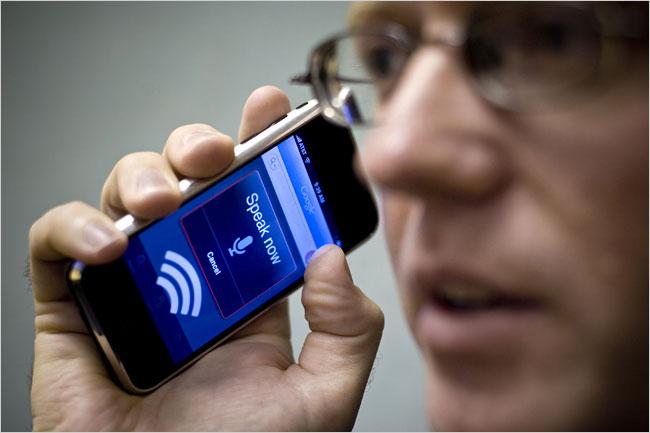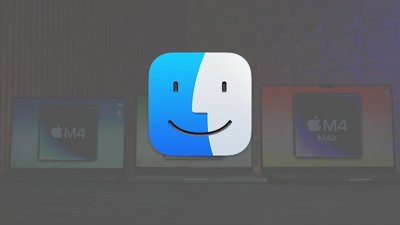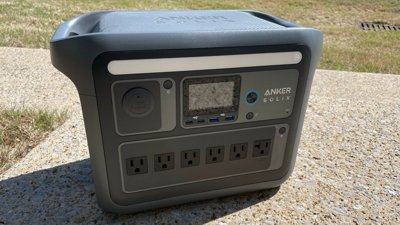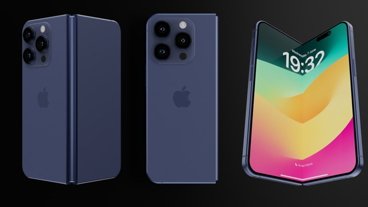"The service can be used to get restaurant recommendations and driving directions, look up contacts in the iPhone’s address book or just settle arguments in bars," wrote the New York Times' John Markoff, who profiled Google's broad speech-recognition efforts while breaking word of the new offering.
For instance, you can ask "What is the best italian restaurant in Cupertino?," and the application should return a list of relevant restaurants with star ratings, reviews, directions and contact information. You could also ask trivia related questions such as "Who was the MVP of the 2006 World Series?"
The service works similar to the one under development at AT&T (profiled by AppleInsider in July), in that it takes your spoken words and passes them over the Internet to one of Google's servers. They're then interpreted by artificial intelligence, translated into a traditional data query, and the results are bounced back to your phone in a matter of seconds if you're on a fast connection.
While the system reportedly has its flaws, it's said to be accurate enough to prove useful for most users. Google's ability to store and analyze vast amounts of data not only gives the search giant an edge in the field, but promises that the service will improve over time as its database of queries expands through increased use.
Google’s voice search will make its way to other phones, but is being made available first on Apple's iPhone | Photo credit: The New York Times
The new application also takes advantage of the iPhone's built-in accelerometer to determine how you're holding the handset. It only throws itself into "listen mode" when it believes you've raised the phone to your ear, thereby reducing unintentional queries.
The new app is said to be an extension of a much broader artificial intelligence initiative at Google that has seen the tech heavyweight hire many of the top speech recognition experts in the world. Another developmental service, GOOG-411, serves up business phone and address information.
 Katie Marsal
Katie Marsal







-m.jpg)






 Malcolm Owen
Malcolm Owen
 Amber Neely
Amber Neely
 Christine McKee
Christine McKee


 William Gallagher
William Gallagher
 Chip Loder
Chip Loder
 Brian Patterson
Brian Patterson

-m.jpg)






24 Comments
Gakk!
Two sentences in a row:
...if your on a fast connection.
While the system reportedly has it's flaws...
That should be "if you're on a fast connection" and "...its flaws".
Bye bye ChaCha...
Gakk!
Two sentences in a row:
...if your on a fast connection.
While the system reportedly has it's flaws...
That should be "if you're on a fast connection" and "...its flaws".
Quite, (and I choose to believe this is testament to the intense time pressure journalists are under rather than an error caused by lack of grammatical knowledge), but the important issue is whether the aforementioned app would notice the difference and slap your wrist.
I am a little skeptical of 'speak' apps as I have never found one that works well. You end up sounding like a moron standing there doing mouth contortions and speaking s-l-o-w-l-y for the damn thing to get what you are trying to pronounce. My last attempt was using BrainAge on a DS. My brain age turned out to be 81 on my first attempt because I had to repeat most words several times. I have since got it down (I'm not telling you to what age as it is still embarrassing!) but I still sound like a moron yelling BEH-L-ACK! into my DS, repeatedly.
Wow, if it truly can recognize what a person is saying accurately without having the need of extensive voice recognition training. That would be great!
What's in this for Google? How do they make money here? Will there be advertising?